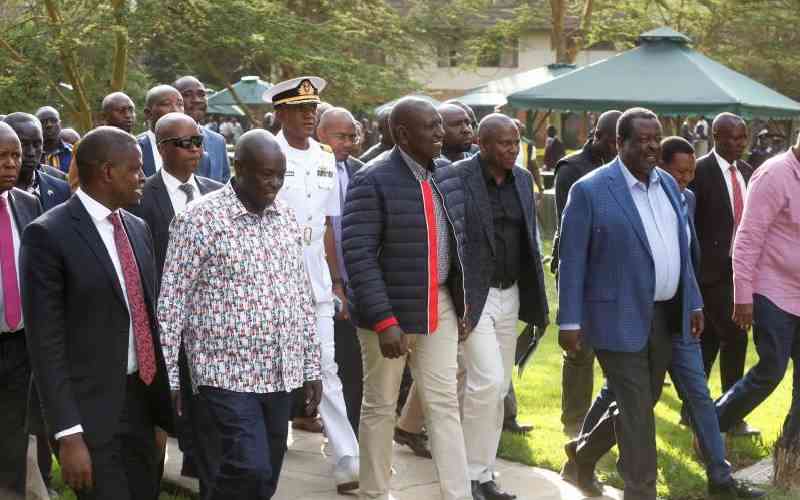×
The Standard e-Paper
Smart Minds Choose Us

Kenyans could soon contend with another mega outfit like Jubilee Party as President William Ruto's United Democratic Alliance (UDA) pushes for the formation of a bigger political tent.
On Thursday, President Ruto held a Kenya Kwanza Parliamentary Group meeting at State House, Nairobi, where attendees say he floated the idea of merging the 14 parties making up the coalition into either UDA or Kenya Kwanza.